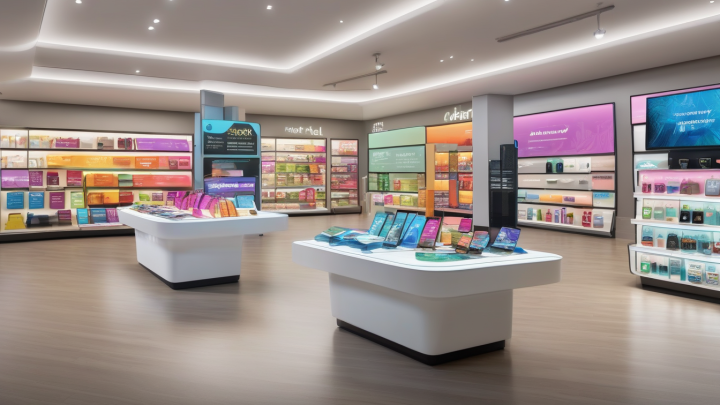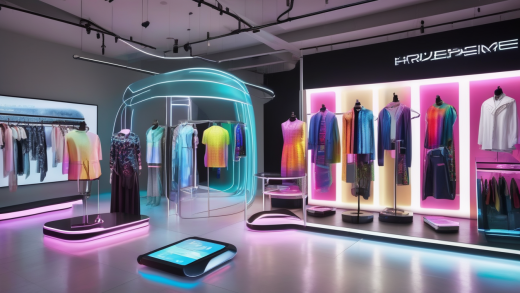Welcome to the exciting world of artificial intelligence in retail! This technology is not just a buzzword; it’s a game changer that’s revolutionizing how we shop and how businesses operate. Imagine walking into a store where everything feels tailored just for you. That’s the magic of AI! By analyzing customer data, preferences, and shopping behaviors, retailers can create personalized shopping experiences that cater to individual needs. It’s like having a personal shopper who knows exactly what you want before you even say a word!
AI enables retailers to offer tailored shopping experiences by analyzing customer data, preferences, and behaviors, leading to more relevant product recommendations and increased customer satisfaction. Think about it: when you browse online or in-store, AI algorithms are working behind the scenes to suggest products that align with your unique taste. This level of personalization not only enhances your shopping experience but also boosts customer loyalty. After all, who wouldn’t want to shop where their preferences are understood and valued?
Through predictive analytics and real-time data processing, AI helps retailers manage their inventory more efficiently, reducing stockouts and overstock situations while ensuring timely product availability. Picture a store where the shelves are always stocked with your favorite items, thanks to AI’s ability to forecast demand accurately. This not only improves customer satisfaction but also maximizes sales opportunities for retailers.
AI-powered chatbots and virtual assistants provide 24/7 customer support, answering queries and resolving issues promptly, thus enhancing the overall customer service experience. Imagine having a knowledgeable assistant available at any hour to help you with your shopping questions. This level of accessibility ensures that customers feel valued and supported, leading to a more positive shopping experience.
By leveraging historical sales data and market trends, AI improves sales forecasting accuracy, enabling retailers to make informed decisions about product offerings and promotional strategies. This means that when you walk into a store, you’re more likely to find the products you love, available at the right time and price.
AI technologies such as augmented reality and smart mirrors create immersive in-store experiences, allowing customers to visualize products better and make informed purchasing decisions. Imagine trying on clothes virtually or seeing how a piece of furniture would look in your living room before buying it. This innovation not only enhances your shopping experience but also builds excitement around the products.
AI algorithms analyze transaction patterns to identify and prevent fraudulent activities, safeguarding both retailers and customers from potential financial losses. This means you can shop with confidence, knowing that your transactions are secure.
AI enhances supply chain efficiency by predicting demand fluctuations and optimizing logistics, ensuring timely delivery of products and minimizing operational costs. This efficiency translates to better availability of products, making your shopping experience smoother.
AI enables retailers to develop data-driven marketing strategies by analyzing customer behavior and preferences, allowing for more targeted campaigns that resonate with consumers. This means that the ads you see are more likely to be relevant to you, making your shopping experience more enjoyable and less cluttered.

Personalized Shopping Experiences
Imagine walking into a store where every product seems to whisper your name. Artificial intelligence (AI) is making this dream a reality in the retail world. By harnessing the power of customer data, AI enables retailers to create highly personalized shopping experiences that cater to individual preferences and behaviors. This means that when you browse online or in-store, the recommendations you receive are not just random; they are tailored just for you!
How does this work? Well, AI analyzes vast amounts of data, including your past purchases, browsing habits, and even social media interactions. This analysis allows retailers to understand what you like, what you might need next, and what products could catch your eye. For instance, if you frequently buy running shoes, the next time you log in, you might see a selection of the latest athletic gear or exclusive discounts on your favorite brands.
But it doesn’t stop there! AI can even enhance your in-store experience. Picture this: you walk into a store, and a smart assistant greets you by name, suggesting items based on your previous visits. This level of personalization not only makes shopping more enjoyable but also increases customer satisfaction and loyalty. Customers are more likely to return to a store that understands their needs and preferences.
Furthermore, personalized shopping experiences can lead to higher conversion rates. When customers feel that a brand truly understands them, they are more inclined to make a purchase. According to studies, personalized recommendations can boost sales by up to 10-30%. This is a win-win situation for both retailers and shoppers!
In conclusion, AI is revolutionizing the retail landscape by providing personalized shopping experiences that enhance customer interactions. As technology continues to evolve, we can expect even more innovative solutions that will further tailor our shopping journeys.

Inventory Management Optimization
In today’s fast-paced retail environment, effective inventory management is crucial for success. Artificial intelligence (AI) plays a transformative role in this area, enabling retailers to optimize their inventory processes like never before. Imagine having a system that not only tracks your stock levels but also predicts future demand based on historical data and market trends. Sounds like a dream, right? Well, AI makes it a reality!
By utilizing predictive analytics, AI can analyze vast amounts of data to forecast demand accurately. This means retailers can avoid the pitfalls of stockouts—when customers can’t find what they want—and overstock situations, where products gather dust on shelves. With AI, businesses can ensure that the right products are available at the right time, leading to increased customer satisfaction and loyalty.
Furthermore, real-time data processing allows retailers to make quick decisions. For instance, if a particular item is flying off the shelves, AI can alert the inventory manager to reorder before stocks run low. This agility not only saves time but also enhances the overall shopping experience for customers. Here’s a quick breakdown of how AI impacts inventory management:
| Benefit | Description |
|---|---|
| Reduced Stockouts | Ensures popular items are always available for purchase. |
| Minimized Overstock | Prevents excess inventory, reducing storage costs. |
| Timely Reordering | Automates the reordering process based on real-time data. |
In conclusion, the integration of AI into inventory management is not just a trend; it’s a necessity for retailers aiming to thrive in a competitive market. By harnessing the power of AI, businesses can streamline their operations, enhance customer satisfaction, and ultimately drive sales. Isn’t it amazing how technology can revolutionize something as fundamental as inventory management?
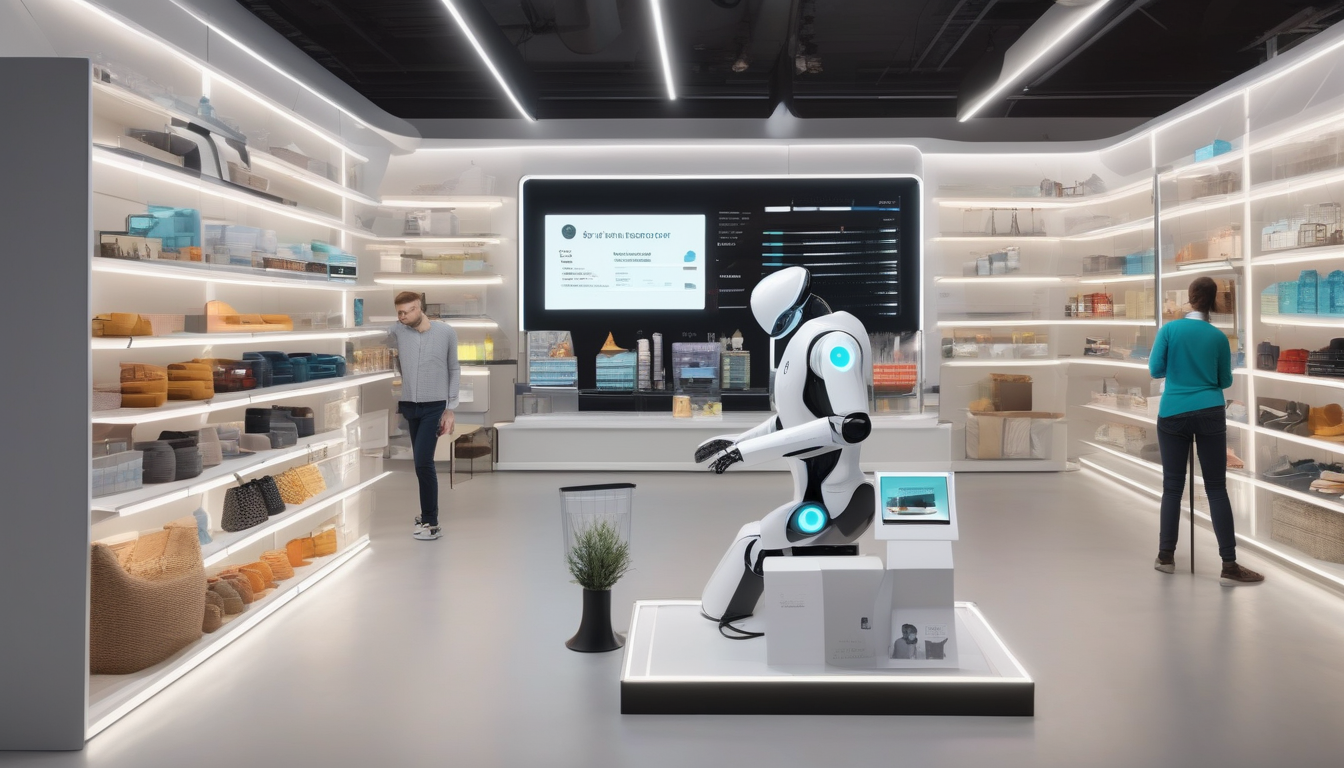
Customer Service Automation
In today’s fast-paced retail environment, has become a game-changer. Imagine walking into a store, and instead of waiting for a sales associate, a friendly AI-powered chatbot greets you instantly. This technology doesn’t just enhance convenience; it revolutionizes the entire customer experience. By utilizing advanced algorithms, these chatbots can provide 24/7 support, answering questions and resolving issues in real-time. Isn’t it incredible to think that you can get help at any hour, day or night?
Moreover, these virtual assistants are designed to learn and adapt. Every interaction is an opportunity for them to improve, making them more effective at understanding customer needs over time. For instance, if a customer frequently asks about a specific product, the chatbot can prioritize that information, offering personalized recommendations tailored to individual preferences. This level of customization not only enhances customer satisfaction but also builds loyalty. Customers feel valued when their needs are anticipated, don’t you think?
Additionally, the integration of AI in customer service can significantly reduce operational costs for retailers. With chatbots handling routine inquiries, human staff can focus on more complex issues that require a personal touch. This shift not only streamlines operations but also ensures that customers receive the best service possible. Consider the following benefits of AI-driven customer service:
- Quick Response Times: Customers receive immediate assistance, reducing frustration and wait times.
- Cost Efficiency: Automation minimizes the need for large customer service teams, saving money.
- 24/7 Availability: Customers can get help anytime, enhancing their shopping experience.
In summary, customer service automation powered by AI is not just a trend; it’s a necessity in the retail landscape. By embracing this technology, retailers can not only improve efficiency but also create a more engaging and satisfying experience for their customers. As we move forward, the question remains: are you ready to embrace the future of retail with open arms?

Sales Forecasting Accuracy
In the fast-paced world of retail, accurate sales forecasting is like having a crystal ball that reveals future trends and customer demands. Imagine being able to predict what your customers will want before they even know they want it! This is where artificial intelligence steps in, transforming the way retailers approach their sales strategies. By harnessing the power of historical sales data and analyzing market trends, AI provides retailers with insights that were once unimaginable.
With AI, retailers can move from guesswork to data-driven decisions. The technology processes vast amounts of information, identifying patterns and correlations that help in predicting future sales more accurately. For example, if a retailer notices an increase in sales of winter jackets during a specific month, AI can analyze weather patterns, social media trends, and even local events to forecast similar spikes in the future.
But how does this work in practice? Here’s a quick breakdown:
- Data Collection: AI collects data from various sources, including past sales, customer behavior, and external factors like economic indicators.
- Pattern Recognition: It identifies trends and patterns that human analysts might miss, using complex algorithms.
- Predictive Modeling: AI creates models that simulate different scenarios, allowing retailers to see potential outcomes based on various inputs.
- Continuous Learning: The system continuously learns from new data, refining its predictions over time.
Imagine a retailer who can accurately predict a surge in demand for a new tech gadget just before the holiday season. By having the right stock on hand, they not only boost sales but also enhance customer satisfaction, as shoppers find what they’re looking for. This kind of precision is invaluable in today’s competitive market.
In conclusion, AI-driven sales forecasting is not just a luxury; it’s a necessity for retailers aiming to thrive in an ever-changing landscape. By leveraging these advanced technologies, businesses can not only improve their operational efficiency but also create a shopping experience that keeps customers coming back for more.
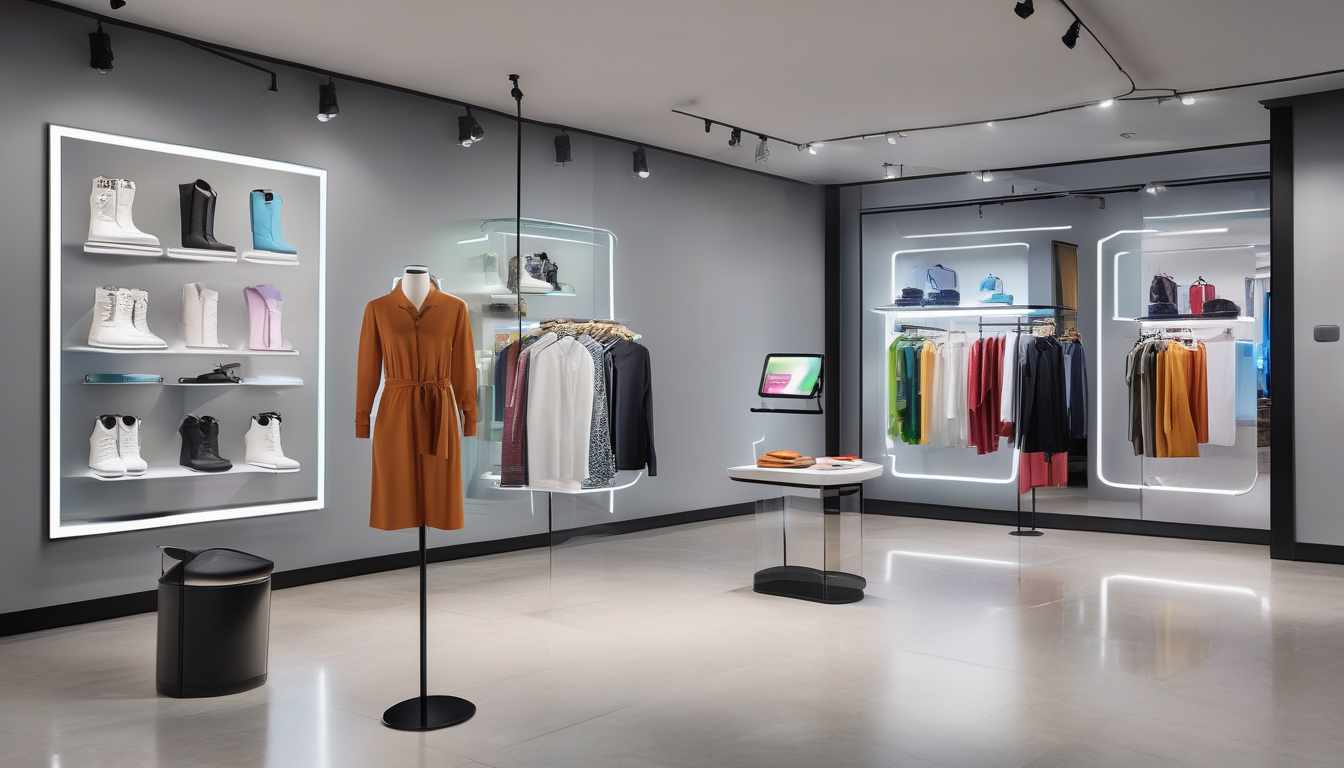
Enhanced In-Store Experience
Imagine walking into a store where the products seem to come alive, engaging you in ways that make shopping not just a task, but an exciting adventure. AI technologies are revolutionizing the in-store experience, allowing retailers to create immersive environments that captivate customers from the moment they step inside. With tools like augmented reality (AR) and smart mirrors, shoppers can visualize products in real-time, making informed decisions that lead to greater satisfaction.
For instance, AR can transform the way customers interact with products. Picture this: you’re trying on a pair of shoes, but instead of just looking at them, you can see how they would look while walking down a virtual street. This not only enhances the shopping experience but also reduces the likelihood of returns, as customers are more likely to be satisfied with their purchases. Furthermore, smart mirrors in clothing stores allow customers to try on outfits virtually, providing instant feedback on how different styles and colors look without the hassle of changing clothes repeatedly.
But the benefits of AI in-store experiences don’t stop there. Retailers are also employing interactive kiosks powered by AI that can guide customers through the store, recommend products based on their preferences, and even provide information about ongoing promotions. This level of personalization creates a unique shopping journey that feels tailor-made for each individual. It’s like having a personal shopping assistant available at your fingertips!
Moreover, the integration of AI can lead to significant operational efficiencies. By analyzing customer movement patterns and preferences, retailers can optimize store layouts and product placements. This means that the most popular items are easily accessible, enhancing the overall shopping flow and making it a breeze for customers to find what they need.
As technology continues to evolve, the future of in-store shopping looks incredibly bright. With AI leading the charge, retailers are not just selling products; they are crafting experiences that resonate deeply with consumers, turning casual shoppers into loyal customers.
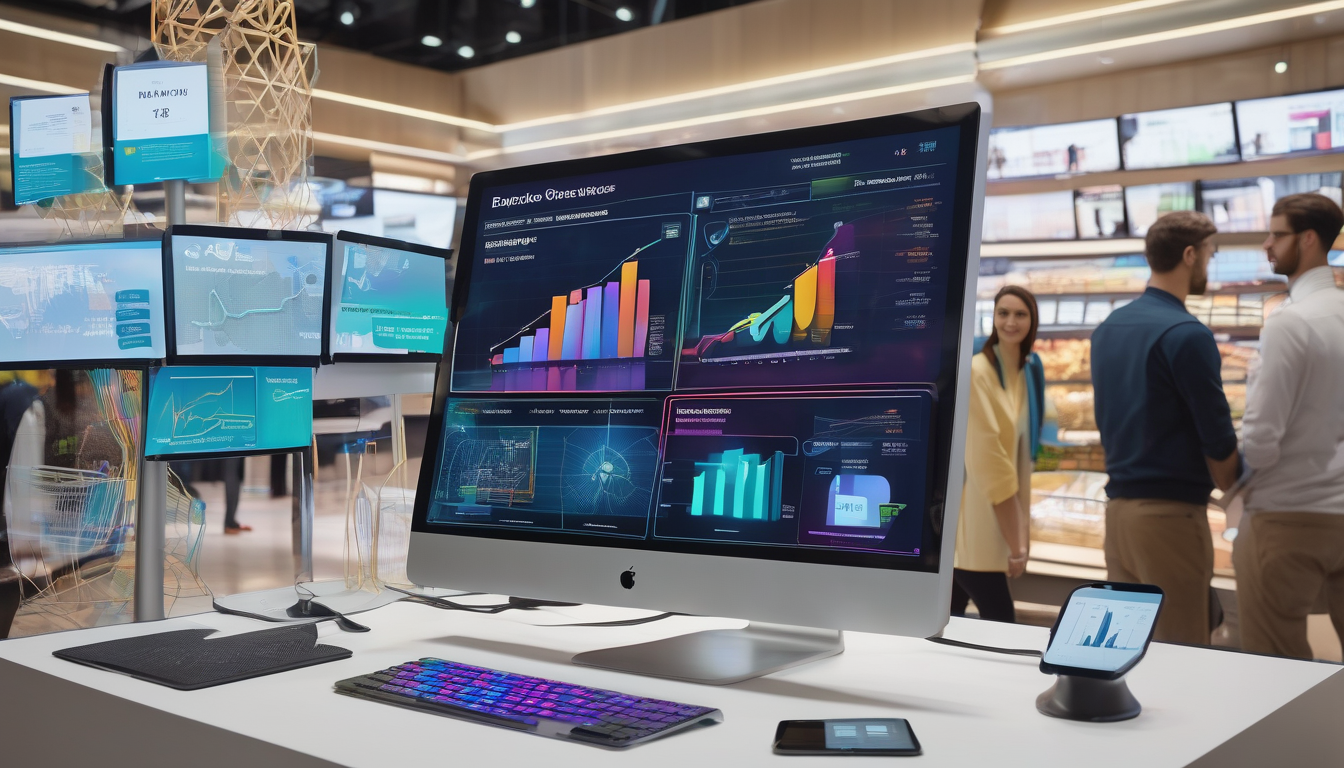
Fraud Detection and Prevention
In today’s digital retail landscape, have become paramount for safeguarding both retailers and customers. With the rapid growth of online shopping, the risk of fraudulent activities has escalated, making it essential for businesses to adopt robust solutions. This is where artificial intelligence steps in, acting as a vigilant guardian over transactions.
AI algorithms are designed to analyze vast amounts of transaction data in real-time. By identifying patterns and anomalies, these systems can detect suspicious activities that might indicate fraud. For instance, if a customer’s purchasing behavior suddenly changes—like making a high-value purchase from a different country—AI can flag this transaction for further investigation. This proactive approach not only protects the retailer’s bottom line but also enhances the customer experience by preventing unauthorized transactions.
Moreover, the sophistication of AI in fraud detection allows for a reduction in false positives. Traditional methods often led to legitimate transactions being flagged as fraudulent, causing frustration for customers. However, AI’s ability to learn from previous data ensures that it becomes more accurate over time, minimizing disruptions in the shopping experience.
To illustrate the impact of AI in fraud prevention, consider the following table:
| AI Feature | Benefit |
|---|---|
| Real-time Monitoring | Immediate detection of suspicious activities |
| Pattern Recognition | Identifies common fraud tactics |
| Adaptive Learning | Improves accuracy over time |
| Reduced False Positives | Enhances customer satisfaction |
In conclusion, AI-driven fraud detection is not just a safety net; it’s a vital component of modern retail operations. By leveraging advanced technology, retailers can not only protect their assets but also foster trust and loyalty among their customers. After all, in a world where online shopping is the norm, ensuring a secure shopping environment is crucial for long-term success.
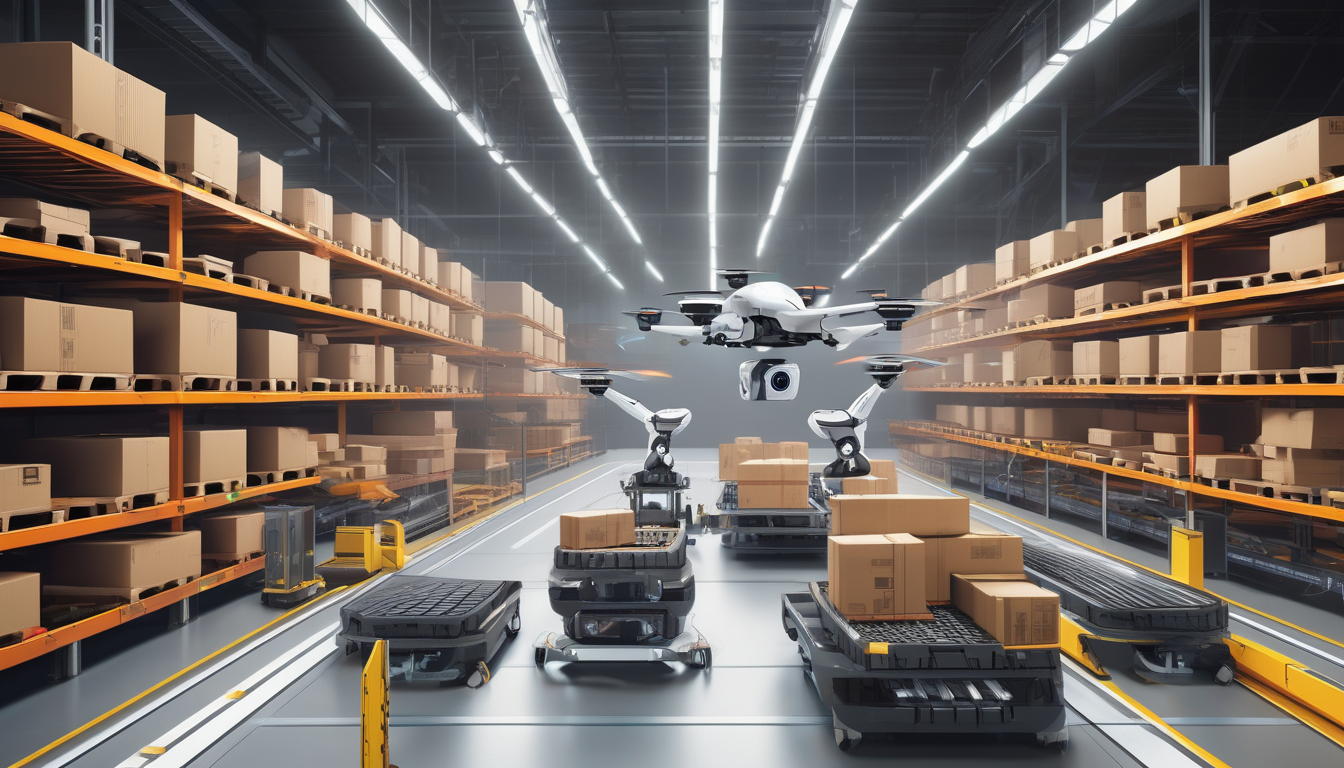
Streamlined Supply Chain Operations
In today’s fast-paced retail environment, efficiency is key, and AI is stepping up to the plate like a seasoned pro. Imagine a supply chain that operates as smoothly as a well-oiled machine, where every cog is perfectly aligned. That’s the power of artificial intelligence! By leveraging advanced algorithms and real-time data, retailers can predict demand fluctuations with remarkable accuracy. This means they can stock up on popular items just before a surge in demand, while avoiding the pitfalls of overstocking less popular products.
Think of it this way: it’s like having a crystal ball that not only shows what customers want but also when they want it. With AI, retailers can analyze trends and consumer behaviors to ensure they have the right products available at the right time. This not only boosts customer satisfaction but also enhances the bottom line.
Moreover, AI optimizes logistics, ensuring that products move from suppliers to shelves with minimal delay. Imagine cutting down delivery times and reducing operational costs simultaneously—sounds like a dream, right? But it’s a reality with AI-driven supply chain solutions. Retailers can track shipments in real-time, adjusting routes and delivery schedules to avoid bottlenecks and delays.
To illustrate the impact of AI on supply chain operations, consider the following table:
| AI Application | Benefits |
|---|---|
| Demand Forecasting | Reduces stockouts and overstock situations |
| Logistics Optimization | Minimizes delivery times and costs |
| Real-Time Tracking | Enhances visibility and control over shipments |
In conclusion, the integration of AI in supply chain operations not only streamlines processes but also transforms the entire retail experience. It’s about making smarter decisions, improving customer satisfaction, and ultimately, driving success in a competitive market. So, why not embrace this technology and watch your supply chain soar?
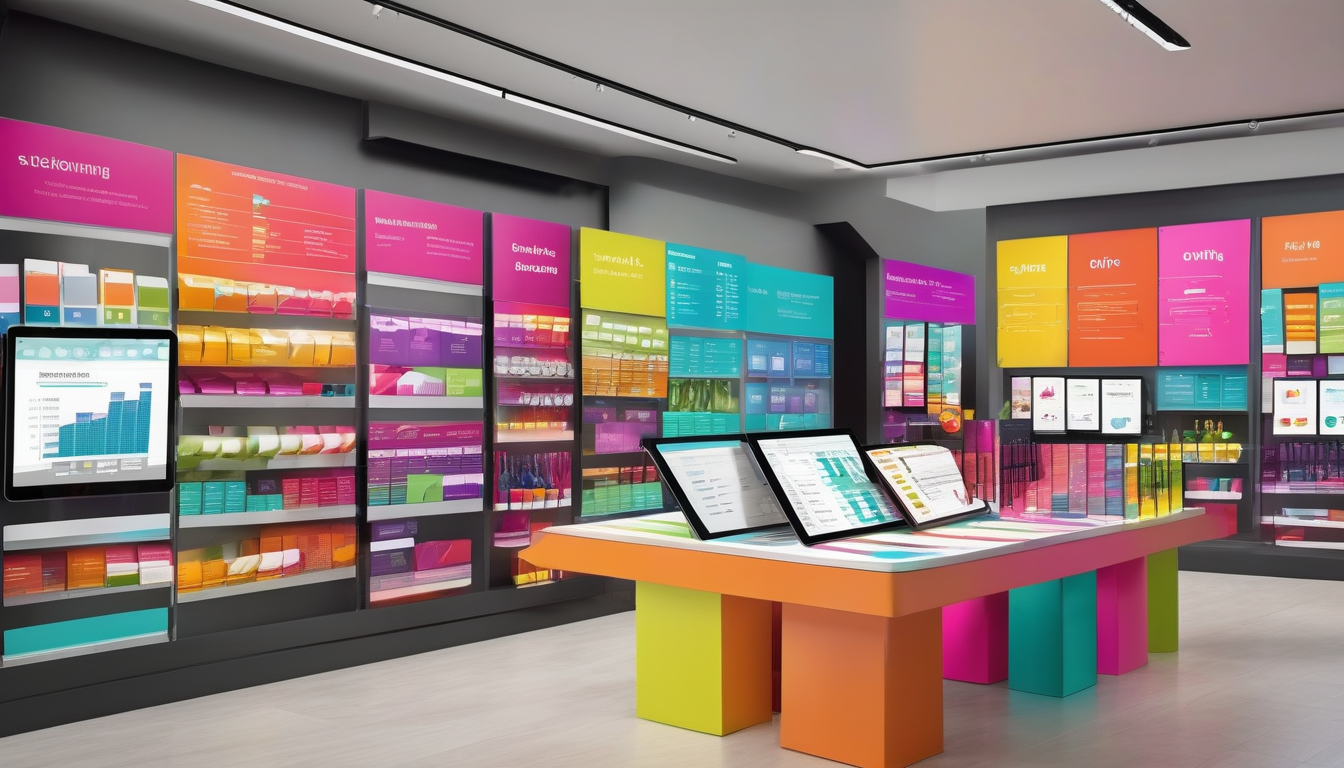
Data-Driven Marketing Strategies
In today’s fast-paced retail environment, are not just a luxury; they are a necessity. Retailers are leveraging the power of artificial intelligence to sift through mountains of data, transforming it into actionable insights that drive sales and enhance customer engagement. Imagine having a crystal ball that tells you exactly what your customers want, when they want it. That’s the magic of AI!
By analyzing customer behavior, preferences, and purchase history, AI helps retailers create highly personalized marketing campaigns. For instance, if a customer frequently buys athletic gear, AI can identify this trend and tailor promotions specifically for sports-related products. This level of personalization not only boosts sales but also fosters a stronger connection between the brand and the consumer.
Moreover, AI enables retailers to segment their audience more effectively. Instead of a one-size-fits-all approach, retailers can categorize customers into distinct groups based on various factors such as demographics, shopping habits, and even social media activity. This segmentation allows for targeted marketing efforts that are more likely to resonate with each group. For example:
- Millennials may respond better to social media campaigns featuring influencers.
- Baby Boomers might prefer email newsletters with exclusive discounts.
Additionally, AI can analyze the effectiveness of marketing campaigns in real-time. Retailers can track which promotions yield the best results and adjust their strategies accordingly. This agility is crucial in a landscape where consumer preferences can shift overnight. With AI, retailers can not only keep up with these changes but also anticipate them.
In conclusion, powered by AI are revolutionizing the retail sector. By harnessing the insights derived from data, retailers can create more effective, personalized, and timely marketing efforts that ultimately lead to increased customer satisfaction and loyalty. As we move forward, the importance of integrating these strategies will only continue to grow.
Frequently Asked Questions
- How does AI personalize the shopping experience?
AI analyzes customer data, preferences, and behaviors to create tailored shopping experiences. Imagine walking into a store that knows exactly what you like—it’s like having a personal shopper who understands your style!
- What role does AI play in inventory management?
AI uses predictive analytics to optimize inventory levels, helping retailers avoid stockouts and overstock situations. Think of it as a smart assistant that ensures the right products are available at the right time.
- Can AI improve customer service?
Absolutely! AI-powered chatbots provide 24/7 support, answering questions and resolving issues swiftly. It’s like having a helpful friend available anytime you need assistance.
- How does AI enhance sales forecasting?
By leveraging historical data and market trends, AI improves the accuracy of sales forecasts. It’s akin to having a crystal ball that helps retailers make informed decisions about what to stock and when.
- What in-store experiences does AI offer?
AI technologies like augmented reality and smart mirrors create immersive shopping experiences. Picture trying on clothes virtually before making a purchase—it’s a game changer!
- How does AI help in fraud detection?
AI algorithms analyze transaction patterns to spot and prevent fraudulent activities. Think of it as a security guard that keeps an eye on suspicious behavior to protect both retailers and customers.
- What benefits does AI bring to supply chain operations?
AI enhances supply chain efficiency by predicting demand fluctuations and optimizing logistics. It’s like having a GPS that guides products to their destination on time, every time!
- How does AI influence marketing strategies?
AI analyzes customer behavior to develop targeted marketing campaigns. Imagine receiving ads that actually match your interests—now that’s effective marketing!
